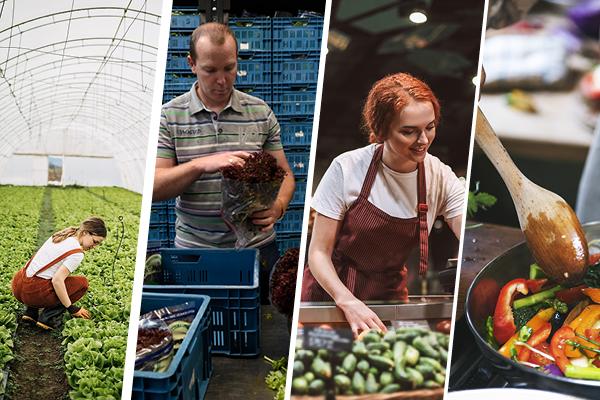
The European Commission is calling farmers and all smaller suppliers across the food supply chain to share their views on their experience with unfair trading practices. A survey is currently available online in all EU languages until 15 March 2024. During the recent weeks farmers and their associations raised concerns about prevalence of unfair practices within the food supply chain. By participating in the survey, farmers and smaller suppliers can express their concerns and share their experience with unfair trading practices. After presenting options for simplification to reduce the burden for EU farmers, the Commission is also working on actions to improve the position of farmers in the food chain and to improve the enforcement against unfair trading practices.
The survey, managed jointly by the Joint Research Centre and the Directorate-General for Agriculture and Rural Development of the European Commission, specifically targets EU farmers and smaller suppliers operating within the agricultural and food supply chain, covering various stages of production and distribution. Respondents can share whether they have experienced unfair trading practices lately from buyers economically stronger.
Before a product reaches the consumer, several market participants take part in the food supply chain (producers, processors, retailers, etc.) and add to its value and impact on the final price paid by the consumer. The abuse of bargaining power between different operators in the supply chain may sometimes lead to unfair trading practices that can have harmful effects.
Upon a proposal of the Commission, the European Parliament and the Council adopted in April 2019 a Directive on unfair trading practices (UTPs) in business-to-business relationships in the agricultural and food supply chain. The Directive bans several unfair trading practices that were too often taking place: late payments for perishable and non-perishable food products; last minute order cancellations; unilateral or retroactive changes to contracts; forcing the supplier to pay for wasted products and refusing written contracts. It also empowers farmers to safely speak up in a confidential manner and for authorities to launch sector inquiries to identify and fine unfair trading practices.
Member States, in charge of enforcing these rules, were required to transpose the Directive into their national legal framework by 1 May 2021 and apply it six months later. To take stock of the prevalence of prohibited unfair trading practices and to assess the effectiveness of measures taken at national level, the Commission is conducting annual surveys. The survey currently open is the third one since the first baseline survey conducted before the implementation of the Directive. The results will be used in the evaluation of the current rules that the Commission is required to carry out by 1 November 2025. Last year’s survey revealed for example that more than 60% of respondents to the survey were not even aware of the existence of the enforcement authorities. This shows that more can be done, both in terms of awareness of the protection available for farmers and smaller suppliers as well as with regard to enforcement when complaints are filled.
To strengthen the position of farmers in the food supply chain, the Commission will present in March to Member States several actions that may cover issues such as market transparency in the value chain, implementation of the Directive against unfair trading practices and its enforcement, costs of production, or more homogeneous control of existing rules on imported agricultural products.
Details
- Publication date
- 27 February 2024
- Author
- Directorate-General for Agriculture and Rural Development
- Location
- Brussels




